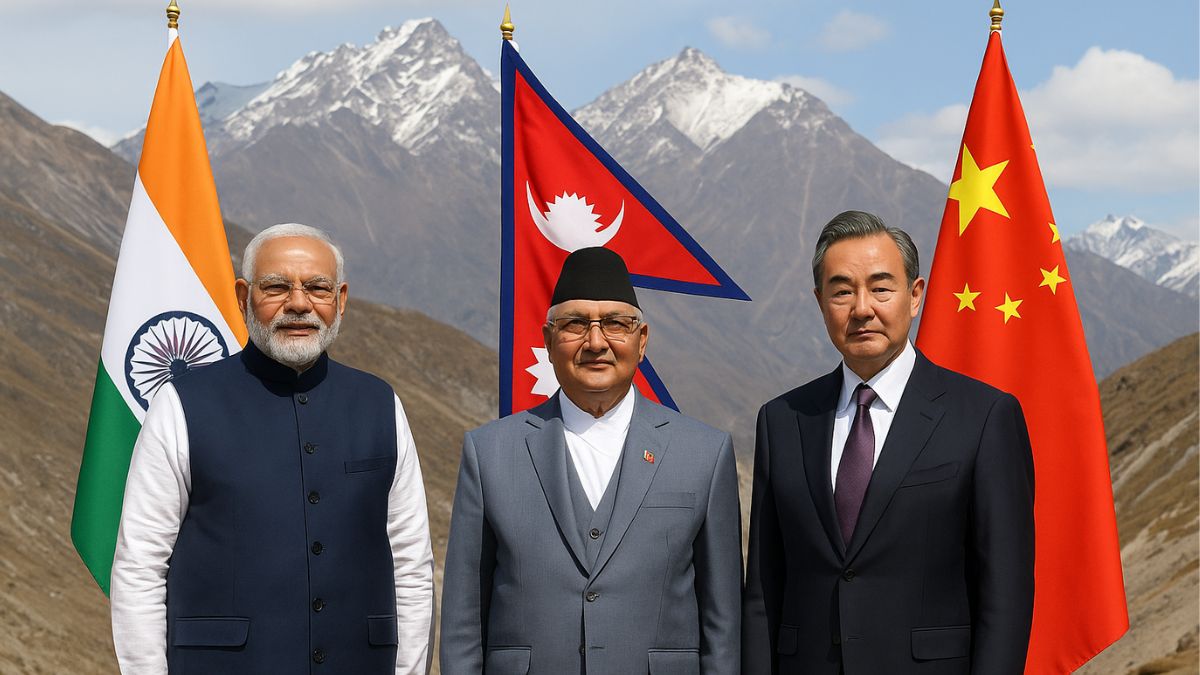India Rejects Nepal’s Objection To Resumption Of Border Trade Through Lipulekh Pass

Border tensions flare again as Nepal protests India-China trade through Lipulekh. (image courtesy GPT-5)
India has firmly dismissed Nepal’s objection to New Delhi and Beijing’s decision to resume border trade through the Lipulekh Pass, asserting that Kathmandu’s claims on the territory are “neither justified nor based on historical facts.”
The move to restart trade came after India and China agreed on August 19 to reopen three traditional border trading routes: Lipulekh Pass (Uttarakhand), Shipki La (Himachal Pradesh), and Nathu La (Sikkim).
The decision was part of confidence-building measures discussed by the Special Representatives of both nations to stabilise relations following years of tension along the Line of Actual Control (LAC).
How has the India-China decision on Lipulekh played out?
Nepal, however, reacted strongly on August 20, invoking its controversial 2020 political map that included Kalapani, Limpiyadhura, and Lipulekh within its territory. The Ministry of Foreign Affairs in Kathmandu stated that the Lipulekh area is an “integral part of Nepal” and criticised the India-China decision as being inconsistent with its sovereignty.
Responding to the objection, External Affairs Ministry spokesperson Randhir Jaiswal dismissed Kathmandu’s claims. “Nepal’s territorial assertions are neither justified nor based on historical facts and evidence. Any unilateral artificial enlargement of territorial claims is untenable,” he said.
What is India’s justification on Lipulekh?
Jaiswal underlined that border trade between India and China through Lipulekh has a long history, dating back to 1954. The route facilitated trade and pilgrimage movement for decades before disruptions caused by the COVID-19 pandemic and subsequent geopolitical developments.
The recent decision by New Delhi and Beijing to reopen these routes, he said, restores long-standing mechanisms of cross-border interaction. The spokesperson also emphasised that India values its relationship with Nepal but reiterated that disputes must be handled diplomatically.
“India remains open to constructive interaction with Nepal on resolving agreed outstanding boundary issues through dialogue and diplomacy,” Jaiswal noted.
Why is Lipulekh a friction point between India and Nepal?
The Lipulekh Pass has long been a point of friction between India and Nepal, particularly after Kathmandu’s 2020 release of a new political map, which New Delhi rejected outright.
Despite periodic tensions, India and Nepal maintain extensive cultural, economic, and people-to-people ties, while India-China border trade continues to function separately under bilateral frameworks.
The reopening of the Lipulekh route is expected to boost cross-border commerce and revive traditional exchanges between India and China, even as Nepal continues to press its claims.







